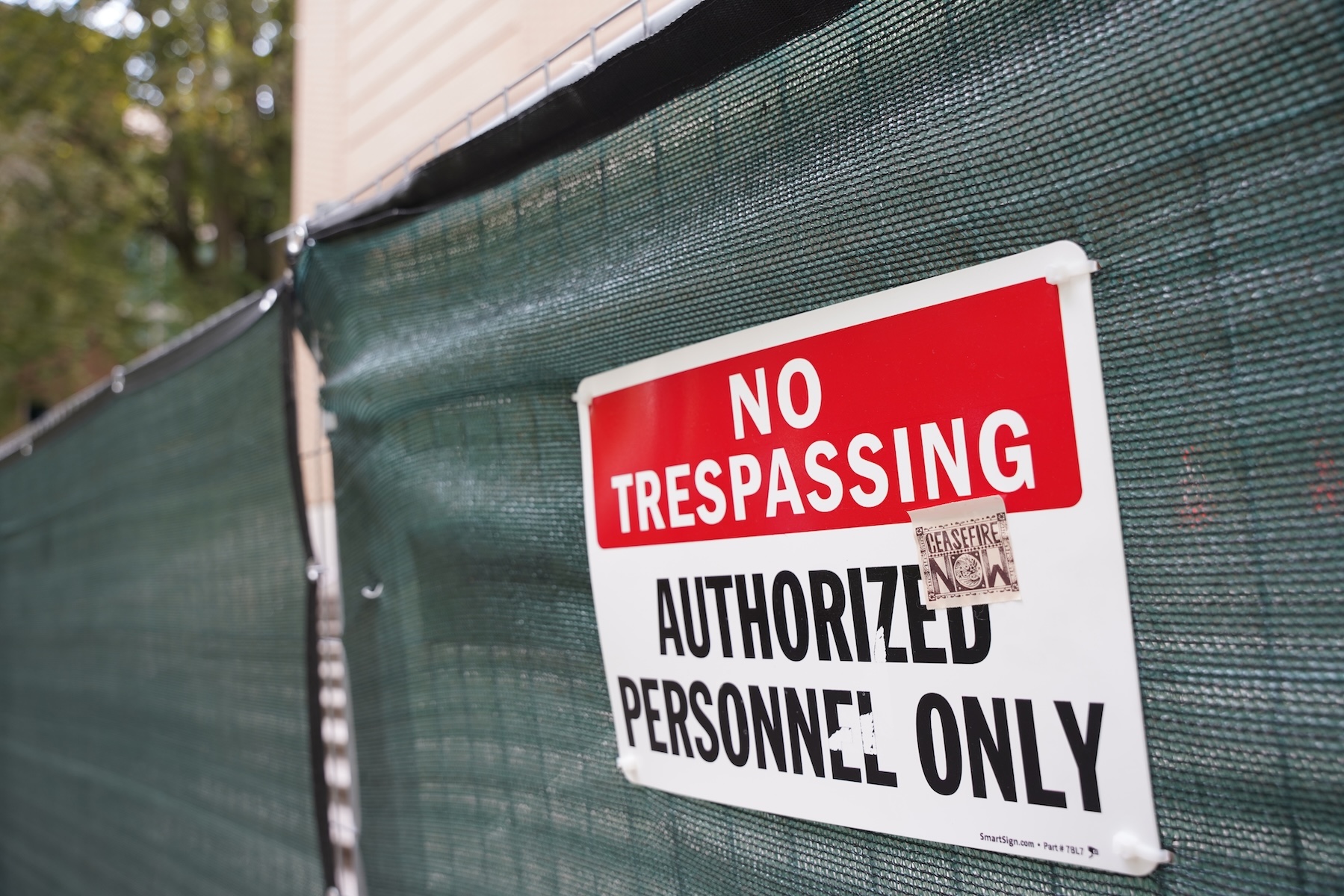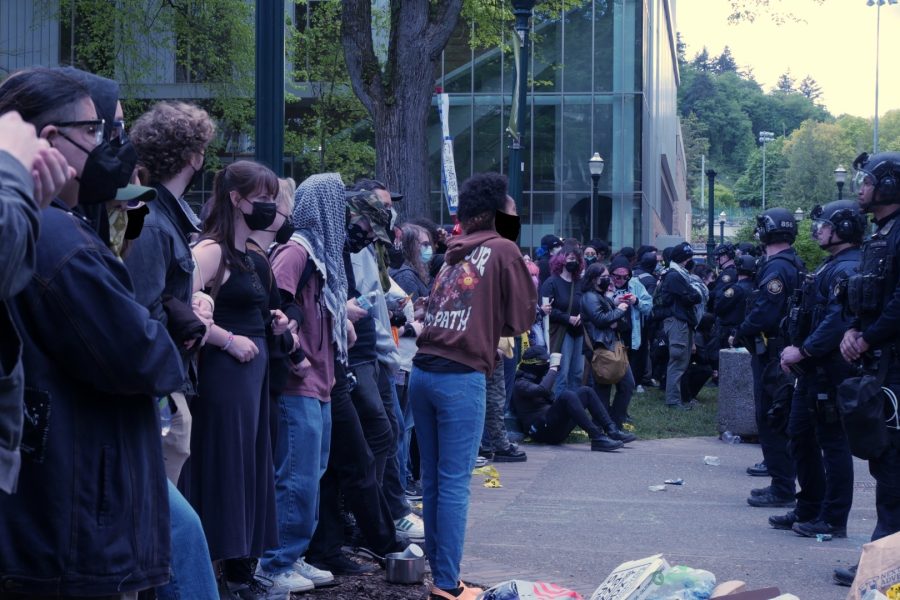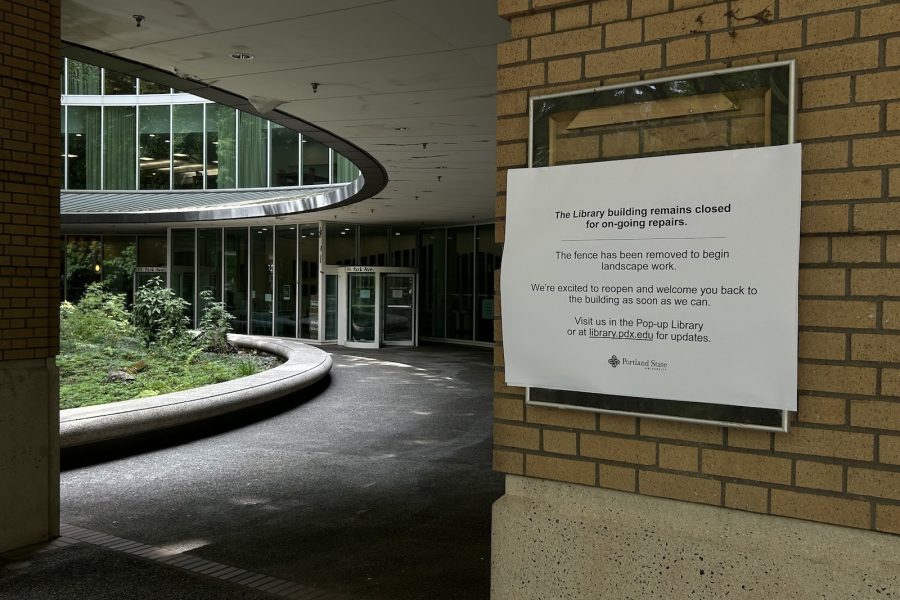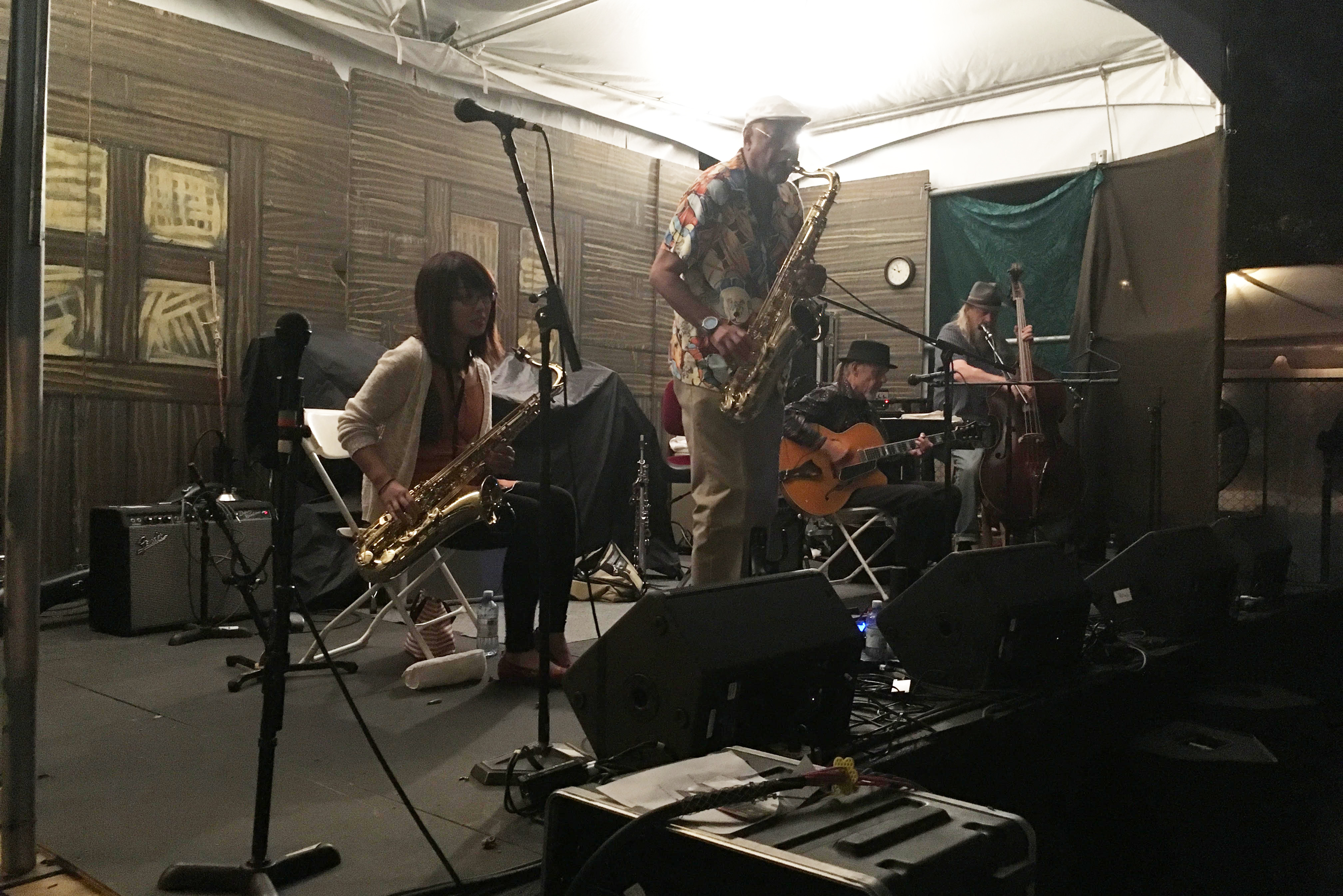Portland State University’s community has been pushing for widespread reforms. This struggle kicked into high gear at the outset of the latest bout of Israeli aggression towards Palestine, specifically the most recent invasion of the Gaza Strip.
Students took particular issue with the relationship between PSU and Boeing, a company supplying bombs and weapons to Israel. One of the most notable demands by student activists is that PSU ultimately divest from companies with ties to the State of Israel. More specifically, cutting any special hiring relationships or donations from Boeing should end, regarding the weapons manufacturer’s $28,000 annual contribution to the university.
Instead of taking the ethical path: acknowledging the genocidal intent of Israel’s war and detaching itself from this company and others that support it, the University’s administration has taken a bold strategy in how they approach these groups.
PSU has chosen to forgo transparency and completely refuse to communicate its commitment or lack thereof to solving or addressing any of the issues that these organizations raise, despite PSU President Ann Cudd’s occasional rejection of “violence or hate of any kind.” The refusal to be specific about the problems students are trying to fix is a common tactic to make any protest look like its participants are blowing things out of proportion. In this instance, it did the opposite. It angered those already involved or thinking about getting involved and added tinder to the protest movement.
This strategy, one of only communicating on its own turf in situations it has complete control over, will not cool down the tensions on campus or take the wind out of the sails of student activists. Instead, the current strifes on campus, such as anger over a skyrocketing tuition that invests in genocide, will continue to fester and grow; and as such growth opportunities for student activist networks will expand in turn.
An example of the strategies is found in how the University chose to engage with the demand to end its special hiring relationship with Boeing.
In an email on April 26, 2024, titled Message from President Cudd regarding PSU, Boeing and Free Speech, the University committed to an open forum on the issue.
“To that end, PSU will host a forum at which these concerns can be carefully framed and debated. We will organize a two hour moderated debate in May to include faculty and student voices. I will participate in the forum, representing the perspective of academic ethics.”
This email came the day after police swept the first protest encampment off the park blocks.
This move was a very transparent attempt to try to divide any moderate voices in the protests away from the more radical voices and get people to submit to a negotiation on admin’s terms. It also failed, as seen in the events immediately following. The protests would not end or slow down. No defections took place. Students stayed out to fight for their demands in the face of the following silence from campus.
In the time between that email and May 1, no other mass communications would be sent from the presidential email address. Furthermore, most mass communications during the protests came in the form of vague, threatening messages from the Campus Alert System. These messages deteriorated trust in the Campus Alert System, which is supposed to be used to alert students to real, serious emergencies such as robberies or assaults in the area. By using it as a scare-mongering tool against the protests and rallies, the alerts caused more fear and heightened the tensions on campus, instead of lowering them.
This promised “two hour moderated debate” would never materialize. In the email My statement and request following last night’s protest at RMNC, the debate would be pushed back to June 5. It would be formally canceled later in ‘Announcing the Committee on Socially Responsible Investment and Partnership.’
Throughout this entire saga, the University only answered questions from outside, off-campus media such as KOIN or Fox 12. They held a press conference where Cudd decried the “violence” of protesters next to members of the Portland Police Bureau who would unleash a morning of beatings and arrests on student protesters three days later.
The last opportunity students had to formally confront their leaders for their incompetence was at a Board of Trustees meeting. At the last minute, the Board of Trustees moved the meeting to an undisclosed location and told students they would be able to call in from a “Viewing Room.” According to a joint statement by campus clubs Kaibigan and PSU Cuba Solidarity, the viewing room was a single classroom in Fariborz Maseeh Hall (FMH), without video or audio equipment. In a three-hour meeting, students only had 30 minutes set aside for comments which was cut off to 23 minutes. This led to Cuba Solidarity being cut off from speaking.
Campus Administrators seem to think that they can wait out or ignore the demands of student activists until they go away. Over the summer, no further action to address these issues has been announced by the campus. For example, the Library is still closed and looks the same as it did when it was first cleared out. It looks as if the administration is dragging its feet on actually doing the repairs they claim are necessary.
Activists, on the other hand, have had the space to grow, build and recruit.
One group of autonomous students have organized a “Revolutionary Summer Camp,” announcing teach-ins about Palestinian issues, art builds, poetry events and fundraisers.
The popular activist Instagram account refaatalareerlibrary, set up during the library encampment and run by “PSU students in solidarity with Palestinian liberation/indigenous resistance,” has taken the time to compile an online library of Zines, Palestinian poetry and other educational resources.
Finally, PSU Kaibigan has started its “Rise 4 Rights” campaign. Their released campaign paper lists the groups that have signed on to help, including Kaibigan, the Progressive Campus Solidarity Union, the Cambodian Student Association and the Arabic Club. They demand structural support be given to cultural student organizations, student resource centers and relief for low-income students.
The momentum for a new campaign on this scale, organized by one of the largest cultural clubs on campus, draws from the new pool of students who have been made aware of the staggering ineptitude and lack of care that Admin has for its students.
These groups and many others have only found space to grow and connect with each other. In the face of a lack of communication and structural change in how the campus administration governs, the idea that universities can simply wait out activists until summer or graduation has seemingly been refuted. Not only has the campus failed to take the wind out of the activists’ sails, but they have also found new allies and strengthened their activist networks. Their ranks swell with students who have learned in a trial-by-fire process the most effective tools and tactics of resistance.
By ignoring the demands of students, they have only put themselves in a worse position. Students are more aware of the flaws in PSU’s governance structure than they ever were before. They are aware of the undue power of the Board of Trustees and that the campus has no problem ignoring any criticisms. The masses of students who were involved in these protests are now more experienced, motivated and ready to make changes on campus if the university does not fundamentally change the way it approaches student issues.






